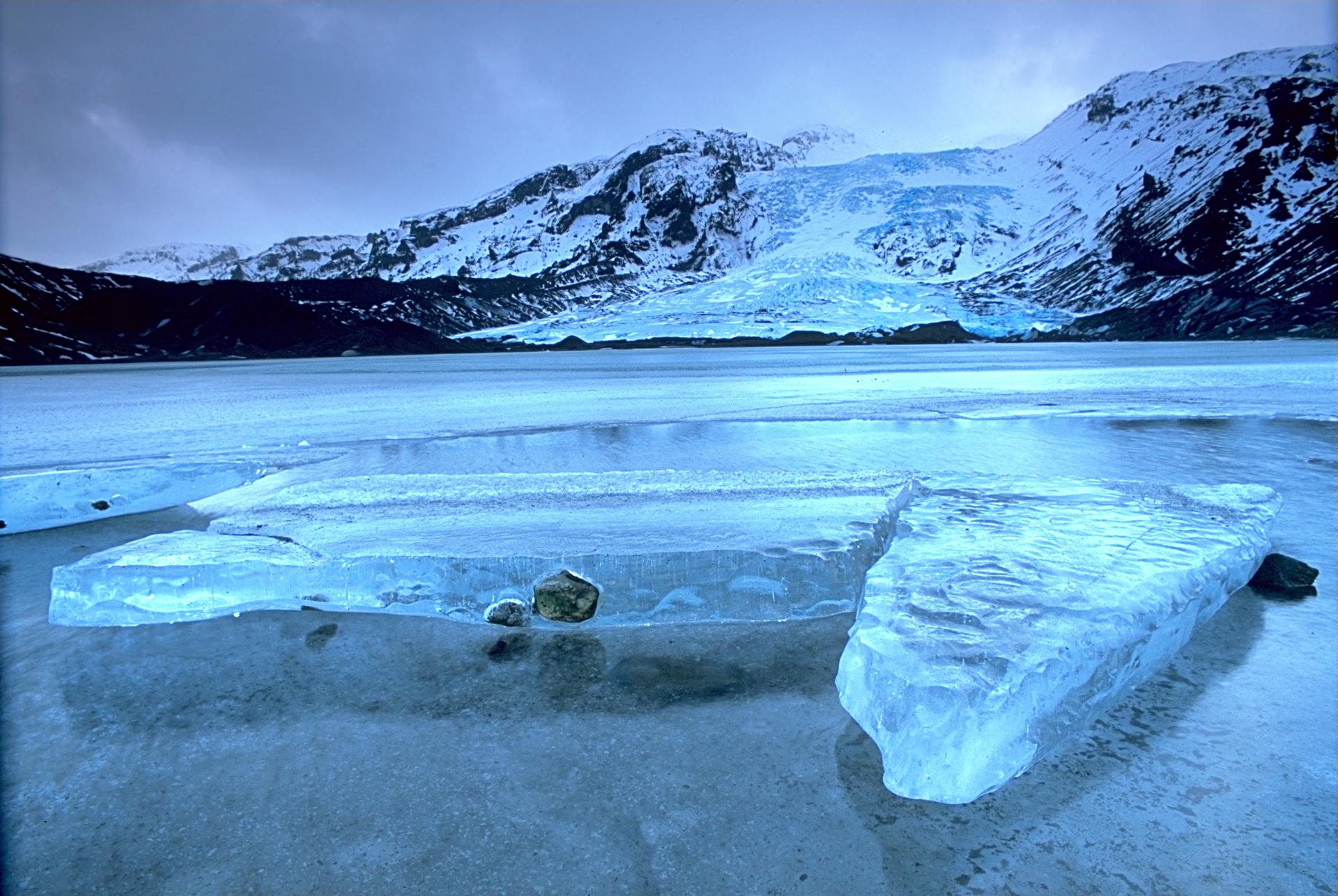Iceland’s president wants his small country to play big role in the future of the Arctic
Gígjökull is an outlet glacier extending from Eyjafjallajökull, Iceland. Iceland, along the southern border of the Arctic region, is looking to have a bigger role in charting the region’s future.
The changing polar climate has made the Arctic a place of intense interest to international players in business, science and politics.
Melting polar ice leads to a host of issues — well beyond the Arctic. New opportunities include new, northern shipping routes and expedited international trade. But those opportunities also bring new security challenges — and potentially disastrous environmental impacts.
In response, President Olafur Grimsson of Iceland decided to launch the first international gathering on the Arctic, called Arctic Circle, from Oct. 12 to 14 in the Icelandic capital of Reykjavik. And Gromsson says the US needs to be more engaged with the changes coming to the Arctic.
"The Arctic is America's backyard. It is one of the most resource-rich areas in the world. If America wants to continue to be a big economy in the 21st century, American companies, the American economy, has to have a strong Arctic dimension," he says.
Ahead of the meeting, Gromsson has spent a great deal of time in the United States, lobbying US leaders to invest more time in the region — and to worry more about the course the region takes.
"What will happen in the Arctic will determine not only America's strategic position, but also America's economic position," he says.
There's another dimension, as well, Gromsson argues. American national security is predicated on the idea of an iced over Arctic. Now that the ice is melting, that may need to change.
"You have for two or three or four months in the summer, a completely open border where anybody on a boat can enter the US without being checked in any way," he says. "Suddenly, in the US Arctic, people … can play around and enter the US without anybody asking for your passport or checking you."
Conversely, Gromsson says Russia is already playing an active, and constructive, role in charting the future course of the Arctic region.
"They've solved their disputes with Norway. They have negotiated the oil spills agreement with the other Arctic countries. They've negotiated the search-and-rescue agreements," he says.
While the Russians certainly have their interests, Gromsson says the biggest issue for the future of the Arctic is when large cargo ships from thriving Asian economies start plying the frozen northern waters.
"We enter this future of Arctic cooperation with some important lessons," Gromsson says. "Given the enormity of the Arctic possibilities, in terms of resources, economic activities and science and research, we will always be a small player. But in order to facilitate how to bring the others together and create harmony, you might need the participation of a country of the size and the culture of Iceland."
Every day, reporters and producers at The World are hard at work bringing you human-centered news from across the globe. But we can’t do it without you. We need your support to ensure we can continue this work for another year.
Make a gift today, and you’ll help us unlock a matching gift of $67,000!
